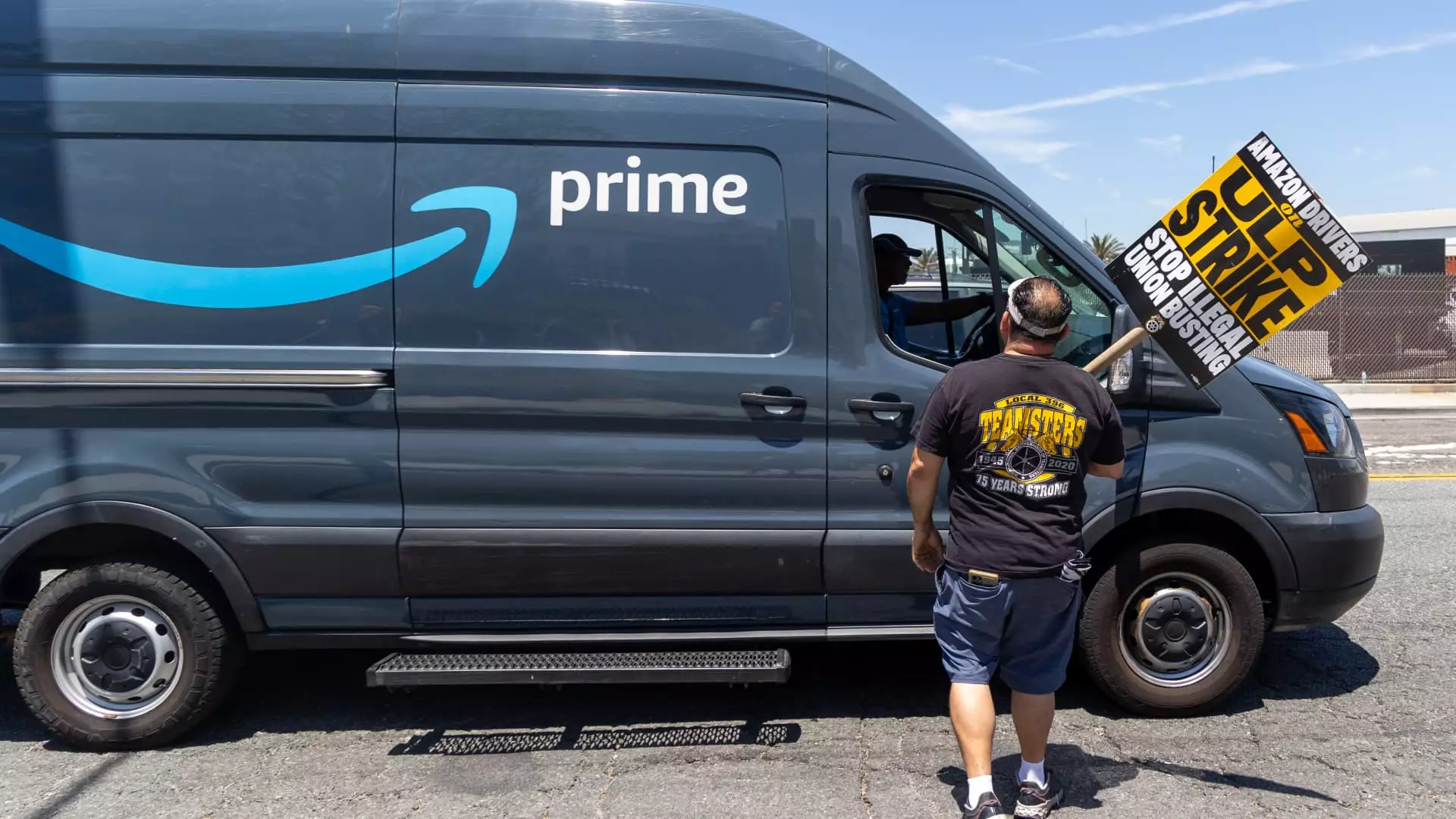It has recently come to light that Amazon’s contracted delivery drivers are facing challenges when it comes to fair treatment and employment status. The National Labor Relations Board (NLRB) has conducted a review of two unfair labor practice charges filed against Amazon regarding the treatment of drivers at an Atlanta warehouse, known as DAT6.
According to a regional director for the NLRB, Amazon should be considered a “joint employer” of some of its contracted delivery drivers. Despite Amazon’s long-standing practice of hiring third-party drivers to handle deliveries, the NLRB found that Amazon was jointly employing drivers at the Atlanta warehouse who worked for a contractor called MJB Logistics.
Lawmakers and labor groups, including the Teamsters union, have disputed Amazon’s characterization of its relationship with contracted delivery drivers. These groups claim that drivers wear Amazon-branded uniforms, drive Amazon-branded vans, and have their schedules and performance expectations set by the company, thus warranting joint employment status.
The NLRB’s determination that Amazon is a joint employer of some contracted drivers could have significant implications for the company. It could compel Amazon to bargain with employees seeking to unionize, potentially altering the landscape of labor relations within the company’s delivery network.
Union Efforts and Amazon’s Response
In response to the NLRB’s determination, the Teamsters union has intensified its efforts to organize Amazon delivery and warehouse workers. The union launched an Amazon division in 2021 to support and fund workers in their organizing efforts. However, Amazon has not been passive in its response, as evidenced by its denial of claims that it cancelled a contract with drivers who voted to unionize.
Allegations of Coercive Behavior
The NLRB also found merit to charges that Amazon threatened drivers in Atlanta, made coercive statements, and created an atmosphere of surveillance at the facility. These allegations raise concerns about the treatment of workers and the company’s approach to labor relations.
It is important to note that the NLRB’s determinations in Atlanta and Palmdale do not represent final board decisions. These determinations are the initial steps in the agency’s process of litigating allegations of unfair labor practices. If the parties involved do not reach a settlement, a hearing will be scheduled with an NLRB judge, with the opportunity for further appeals in federal court.
Amazon’s relationship with contracted delivery drivers has come under scrutiny due to allegations of unfair treatment and joint employment status. The outcome of the NLRB’s review could have far-reaching implications for Amazon and its labor practices. As the legal process unfolds, it remains to be seen how this will impact the company’s relationship with its workforce and the broader landscape of labor relations in the delivery industry.


Leave a Reply